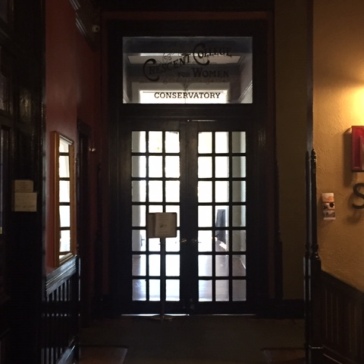Notes from a Reading Journal: “The Southern Book Club’s Guide to Slaying Vampires,” by Grady Hendrix.
Wow! What started off as a bit of a campy, light-hearted, Southern-fried horror tale turned very dark (and went way deeper than I expected). Set in Charleston, SC, the ladies are old-fashioned housewives of the 1980s -1990s, but if you have ever lived or traveled there, you will know that trends move slower in the South.
Reading murder books at book club is how the ladies get some excitement in their life. At first, we are treated to some hilarious “Southernisms” and anecdotes in the beginning of the book. Everyone is eating cheese straws, shopping at the Piggly Wiggly, delivering casseroles, reading Redbook, and keeping their houses up to par. Until, one night, Patricia happens upon her elderly neighbor, Ann Savage, eating a raccoon while she is taking her trash out one night. I died laughing when Patricia’s response was a well-cultivated “May I help you?” Patricia is attacked and has her earlobe bitten off.
Pretty soon all hell breaks loose from there. Ann Savage’s mysterious nephew moves into her home and begins wreaking havoc. James Harris is a vampire, and a unique one from the typical throat-biting Dracula model. Fighting the monster is just half of the horror, though.
This book is a story of dual horror. One story line concerns the “ordinary” lives we lead. The relationships we cultivate, and what is left when things get hard. The horror themes from the everyday lives were the terrible instances of abuse, gaslighting, and manipulations that the husbands all engaged in over their wives. There is the theme of money, power, and corruption. There is the theme of racism and murder in the South. It is a much heavier and deeper book than I expected it to be going in. If you are paying attention, there is a lot to think about from a friendship/relationship perspective here. If you are paying attention, much of this book will make you angry. After all, you expect a monster to be a monster, but we don’t expect our husbands and our friends to be monsters. The ladies are flawed and late to take action as well, and sometimes it is hard to like them.
Quotes that I kept for my reading journal:
P. 61: “Everyone knew that any place up north was roughly the same: lawless, relatively savage, and while they might have nice museums and the Statue of Liberty, people cared so little for each other they’d let you die in the street.”
P. 77: “What are you reading that other people didn’t pick out for you?”
P. 224: “My family is my rock,” Slick said. “You’ve never lost everything. I have. Let Destiny’s mother worry about Destiny. I know you think this makes me a bad person, but I need to turn inward and be a good steward to my family right now. I’m sorry.”
P. 228: “You’re on your side,” Mrs. Greene said. “Don’t ever fool yourself about that.”
P. 270: “No one cares about us out here except when they need us to clean up their mess.”
P. 351: “Let me tell you something…there’s nothing nice about Southern ladies.”
P. 363: “I am singular in this world. I am what you people make legends from.”









































































